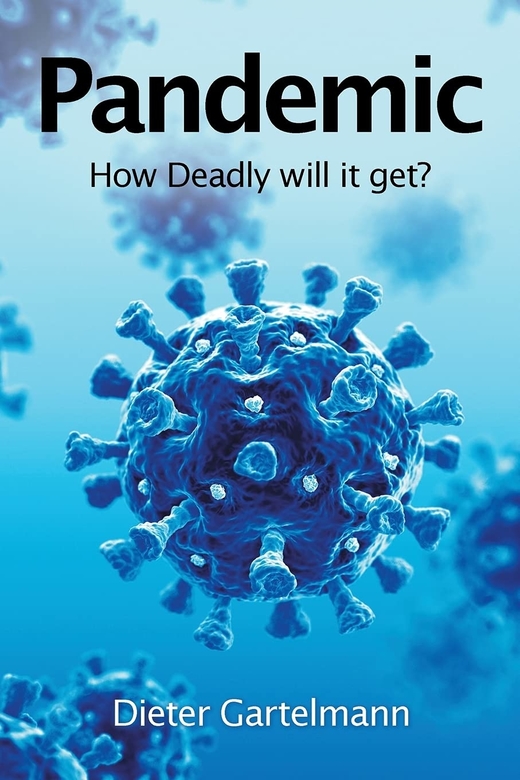
A novel that strongly argues the point that reality is stranger than fiction, Pandemic by Dieter Gartelman is a fictional retelling of the pandemic still wreaking havoc around the globe, and a hypothetical fate we all may still face. Blending true history with semi-hysterical visions of the future is a storytelling gamble, but Gartelman hits the mark in this prophetic and troubling portrait of America.
Having a diverse range of protagonists provides a uniquely well-rounded perspective on the global crisis at the center of this story. Michael Thompson’s expertise in public health, his wife Dorothy’s intrepid reporting skills, John Othallo’s off-the-beaten-track attitude and adventurous spirit, and Sue’s growing anxieties about the world’s uncertainty each generate a different tack on the pandemic that different readers may recognize. From the highest halls of power to backcountry hideaways where survivalists thrive, this novel provides a broad look at the impact and response to America’s deadly crisis.
Dorothy uses her position of power to push back against America’s clearly failing response, even though she needs to use pseudonyms to do it, but her spot-on commentary eventually gets her in the same room as the newly elected president. She is perhaps the most interesting player, affecting the most change and offering a philosophical perspective on the role and responsibility of reporters – a discussion that feels more important than ever.
Thematically speaking, Dorothy is also a critical cog in the story, considering that her reports, penned as Rebecca Sanders, touch on everything from the pandemic and public health to civil rights, individual liberty, scientific suspicion, and a surging protest movement sweeping the nation. Many of her articles included in the text act as provocative think pieces that pose questions to readers that apply in our current situation, as the book’s allegorical, parallel universe setting is intricately tied to current events, which makes it a particularly riveting read. The reports, transcripts, and other documentation, even if fabricated, provide depth and authenticity to the tale, for an astute and prescient form of metafiction.
The omniscient meditative master, Argus E the Andamanese scientist, plays an intriguing role in the story – a kind of psychic guide who enables readers to get into the minds of the main characters. In one way, it reminds readers that they’re reading fiction, but this can also be seen as an unnecessary switch in tone and perspective, as the book works best when it reflects real-world events, as it so often feels spine-chillingly prophetic. The spike variations in the novel are similar to our latest, more transmissible variant, and while the president isn’t yet mandating lockdowns, or allowing the army to patrol the streets, the similarities are alarming.
The writing itself, however, has a few issues, with occasional errors that can be distracting. Some stretches of dialogue become jumbled when speakers’ lines aren’t separated properly, while missing prepositions and commas cause stumbles in other sections, and some of the tangential jumping between lines of thought can be confusing. The narrative voice is also a bit inconsistent, with a tone that veers from formal and declarative to opinionated, non-omniscient, and even apathetic. The bursts of humor are refreshing, especially given the subject, and the book could do with more of that sardonic snark, as Gartelmann obviously knows how to land a good punchline.
All told, Pandemic has a few issues in the execution, but ultimately the novel is a timely, troubling, and gripping read about the state of the union.
Book Links
STAR RATING
Design
Content
Editing
Get an Editorial Review | Get Amazon Sales & Reviews | Get Edited | Publish Your Book | Enter the SPR Book Awards | Other Marketing Services






















Leave A Comment